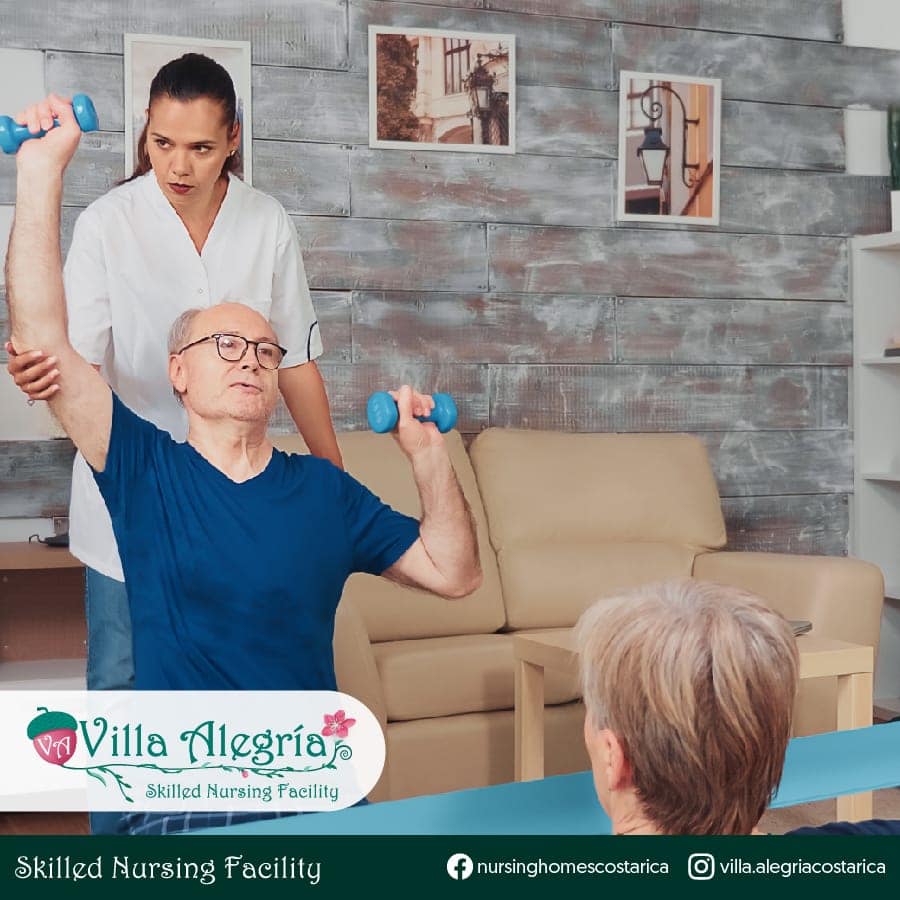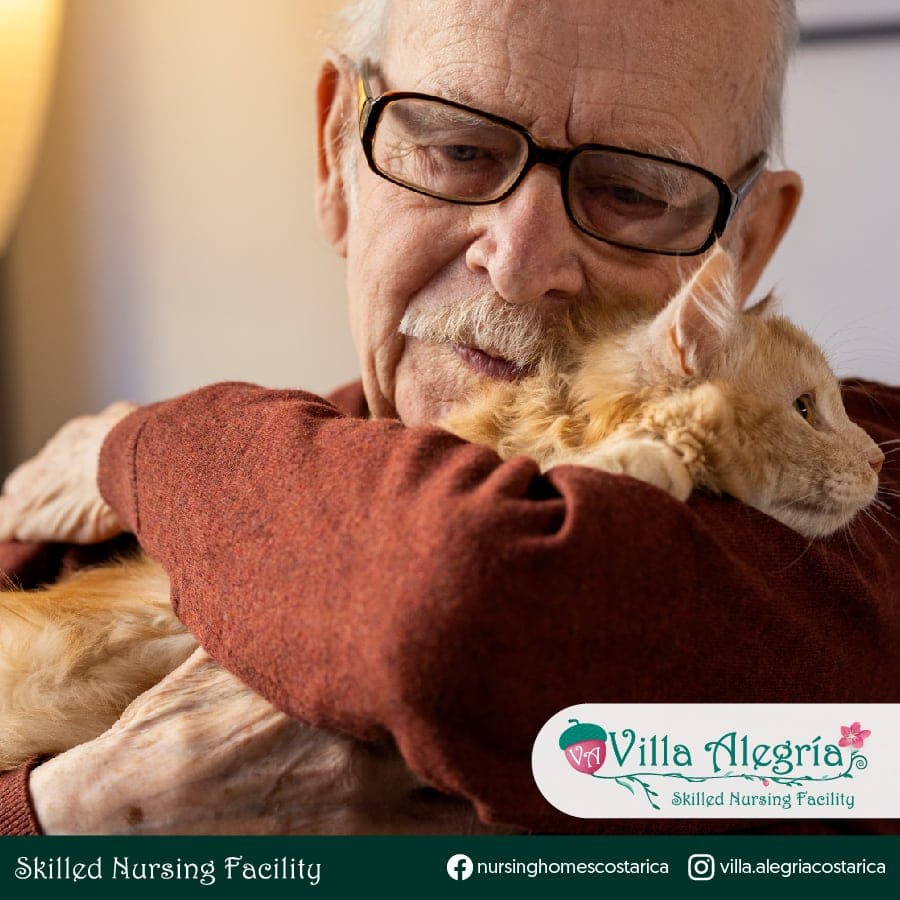
Healthy Lifestyles for Older Adults
Healthy Lifestyles for Older Adults: Promoting Wellbeing Today
Today, older adults have a wealth of opportunities to stay active, healthy, and enjoy a full life. Adopting a healthy lifestyle is essential to promote physical, mental and emotional well-being at this stage of life. In this article, we will explore the different aspects of a healthy lifestyle for older adults today and provide practical tips to help them make the most of this stage of life.
I. Physical activity:
Regular physical activity is essential to maintain health and vitality in old age. Here are some tips for safe and effective physical activity:
- Consult with the doctor: Before starting any exercise program, it is important to consult with the doctor to ensure that there are no specific contraindications or restrictions.
- Aerobic exercise: Aerobic exercise, such as walking, swimming, or cycling, is ideal for strengthening the cardiovascular system, controlling weight, and improving mood. It is recommended to perform at least 150 minutes of moderate-intensity aerobic activity each week.
- Strength exercise: Strength training with weights, resistance bands, or gym machines helps maintain muscle mass, improve bone density, and promote physical independence. It is recommended to include strength exercises at least twice a week.
- Flexibility and balance: Flexibility exercises, such as yoga or tai chi, help maintain joint mobility and improve balance, thereby reducing the risk of falls and injuries. It is important to spend time on activities that improve flexibility and balance.

II. Healthy nutrition:
Adequate nutrition is essential at all stages of life, and older adults are no exception. Here are some tips for healthy eating:
- Balance and variety: Including a variety of foods in the daily diet ensures the intake of essential nutrients. It is recommended to consume a combination of fruits, vegetables, whole grains, lean proteins and healthy fats in moderate portions.
- Hydration: Adequate hydration is essential for the proper functioning of the body. Drink enough water throughout the day and make sure you stay hydrated, especially in hot weather or during physical activity.
- Portion control: Portion control is important to avoid excess calories and maintain a healthy weight. Using smaller plates, reading food labels, and paying attention to satiety cues are helpful strategies.
- Reducing sodium and added sugars: Limiting the consumption of processed foods and sugary drinks helps reduce the intake of sodium and added sugars, which is beneficial for cardiovascular health and blood glucose control.
III. Mental and emotional health:
Taking care of mental and emotional health is essential for a healthy lifestyle in older adults. These are some recommendations:
- Maintain social connections: Maintaining active and meaningful social relationships can improve emotional well-being and prevent isolation. Participating in community activities, interest groups and maintaining contact with friends and family is essential.
- Mental stimulation: Engaging in activities that stimulate the brain, such as reading, doing crossword puzzles, or learning something new, helps maintain mental acuity and reduce the risk of cognitive decline.
- Stress management: Stress can have a negative impact on health. Practicing relaxation techniques, such as meditation, yoga, or deep breathing, can help reduce stress and promote calm.
- Adequate rest: Quality sleep is essential for overall health. Establishing a regular sleep routine, creating an environment conducive to rest, and limiting your intake of stimulants before bed can improve sleep quality.
IV. Disease prevention and health care:
Prevention and health care are key elements of a healthy lifestyle for older adults. These are some recommendations:
- Regular Health Checkups: Getting regular health checkups, including screening for common diseases such as cancer and heart disease, can help detect and treat conditions early.
- Vaccination: Staying up to date on recommended vaccinations, such as the flu and pneumonia shots, can help prevent infectious diseases and serious complications.
- Medication and adherence to treatments: It is important to take medications according to the doctor’s instructions and maintain good adherence to the prescribed treatments. Having an organized system for remembering doses and asking for help when needed can be helpful.
- Home safety: Making adjustments at home to reduce the risk of falls and accidents, such as installing grab bars in the bathroom, removing loose rugs, and improving lighting, can improve safety and independence.

Conclusion: A healthy lifestyle today gives older adults the opportunity to enjoy a full and active life. Regular physical activity, healthy eating, mental and emotional health care, and disease prevention are key elements. By adopting these habits, older adults can enjoy a better quality of life, maintain their independence and make the most of this stage full of possibilities.
27 thoughts on “Healthy Lifestyles for Older Adults”
Leave a Reply
You must be logged in to post a comment.
Thanks designed for sharing such a nice idea, article is pleasant, thats why i have read it completely
Thank you for taking the time to read our article and for your kind words. We’re glad to hear that you found the information we shared helpful. We hope to see you again soon on our blog!
certainly like your website however you need to take a look at the spelling on several of your posts.
Several of them are rife with spelling problems and I in finding it very troublesome to inform the reality nevertheless I’ll definitely
come back again.
Thank you for your feedback. We apologize for any spelling errors you may have encountered on our website. We take quality seriously and will make sure to address these issues promptly. Your input is valuable to us, and we appreciate your willingness to give us another chance. We strive to provide accurate and well-crafted content, and we’ll work diligently to ensure a better experience for you in the future. Thank you for bringing this to our attention.
Your style is so unique in comparison to other people I’ve read stuff from.
Thanks for posting when you’ve got the opportunity, Guess
I will just book mark this web site.
Thank you for your kind words! We’re delighted to hear that you appreciate our unique style. We aim to provide valuable and distinctive content for our readers. Feel free to bookmark our website for future reference, and we hope to see you back here soon! If you have any specific topics or suggestions you’d like us to cover, please don’t hesitate to let us know.
It’s the best time to make some plans for the future and it is time to be happy.
I have read this post and if I could I desire to suggest
you some interesting things or advice. Perhaps you can write
next articles referring to this article. I wish to read even more things about it!
Thank you for your comment! We’re glad to hear that you enjoyed the article. If you have any ideas or suggestions for future topics or content you’d like to see covered in our upcoming articles, we’d love to hear them! Please send your ideas to this email: villaalegria.costarica@gmail.com. We will definitely take your suggestions into account for our future content. Looking forward to hearing from you soon!
Nice post. I was checking continuously this blog and I’m impressed!
Very helpful info specially the last part 🙂 I care for such information a lot.
I was seeking this particular info for a very long time.
Thank you and good luck.
Thank you for your kind words! We’re thrilled to hear that you found the post helpful and that it provided the information you were seeking. Our goal is to offer valuable content to our readers, and we’re delighted to know that you care for such information. If you have any further questions or topics you’d like us to cover, feel free to let us know. We appreciate your support, and we wish you the best of luck with your endeavors.
This is my first time pay a quick visit at here and i am genuinely pleassant to read all at one
place.
Welcome! We’re delighted that you chose to visit us for the first time. We aim to provide a pleasant reading experience with all our content conveniently gathered in one place. If you have any questions or topics you’d like to explore further, don’t hesitate to reach out. We hope you continue to find our website enjoyable and informative. Thank you for stopping by!
What’s up, every time i used to check webpage posts here in the early
hours in the break of day, because i like to gain knowledge of more and more.
Hello! It’s great to hear that you enjoy checking webpage posts here in the early hours. Learning and gaining knowledge is a wonderful habit to cultivate. If you have any specific topics you’re interested in learning more about, feel free to let us know, and we’ll do our best to provide you with informative content. Keep on seeking knowledge, and have a fantastic day!
Yesterday, while I was at work, my cousin stole my apple ipad and tested to
see if it can survive a 30 foot drop, just so she can be a youtube
sensation. My apple ipad is now broken and she has 83 views.
I know this is totally off topic but I had to share it with someone!
I’m sorry about what happened to your iPad. It sounds like a pretty unfortunate situation. I hope you can find a solution soon!
Excellent write-up. I certainly appreciate this site. Continue the good
work!
Thank you for your kind words! We’re delighted to hear that you appreciate our site. We’re committed to providing valuable content and will continue working hard to maintain the quality of our work. If you have any suggestions or feedback, feel free to share them with us. We appreciate your support!
What’s up, all the time i used to check weblog posts here
in the early hours in the dawn, since i like to gain knowledge of more and more.
It’s great to hear that you’re eager to learn! Checking weblog posts in the early hours of the dawn is a fantastic way to start the day. Keep exploring and gaining knowledge—it’s a wonderful habit to cultivate. If you have any specific topics you’re interested in learning about, feel free to let me know!
Everything published made a lot of sense. But, what about this?
what if you added a little content? I am not suggesting your content isn’t
solid, but suppose you added a post title to maybe grab folk’s
attention? I mean Embracing Healthy Lifestyles for Older Adults | Best 1
Tips is a little plain. You ought to glance at Yahoo’s front page and watch how
they create article headlines to get people to open the links.
You might add a video or a pic or two to get readers excited about everything’ve written. In my opinion, it
might make your posts a little livelier.
Thank you for your comment! We appreciate your suggestions on how to enhance our content. We agree that adding more visual elements, such as videos or images, can make our articles more engaging and dynamic. We also acknowledge the importance of creating catchy headlines to grab the attention of our readers.
We will take your recommendations into consideration and work on incorporating more visual content and improving our headlines to make our posts more interesting and appealing. We value your feedback and look forward to continuing to improve to provide you with quality content that is both relevant and exciting. Thank you for your support!
Howdy just wanted to give you a quick heads up and let you know a few of the pictures aren’t loading properly.
I’m not sure why but I think its a linking issue.
I’ve tried it in two different internet browsers and both show the same outcome.
Thank you for bringing this to our attention. We apologize for any inconvenience caused by the pictures not loading properly. We’ll investigate the issue further to determine if there’s a linking problem causing the images to fail to load consistently across different browsers. Your feedback is valuable to us, and we’ll work to resolve this issue promptly. If you encounter any other issues or have additional feedback, please don’t hesitate to let us know. Thank you for your understanding.
Do you mind if I quote a few of your posts as long as I provide credit and sources back to your weblog?
My blog site is in the exact same area of interest as yours and my users
would genuinely benefit from some of the information you provide here.
Please let me know if this alright with you.
Many thanks!
Thank you very much for your interest in our content! We’re delighted to know that your blog shares the same area of interest. Of course, you have complete freedom to share any information you find useful for your users. It’s a pleasure for us to contribute to the exchange of knowledge and benefit more people. Feel free to quote or share whatever you need. We’re here to help!
Нi friends, its impressive piece of writіng
regarding educationand entireⅼy defined, keep it up all the timе.